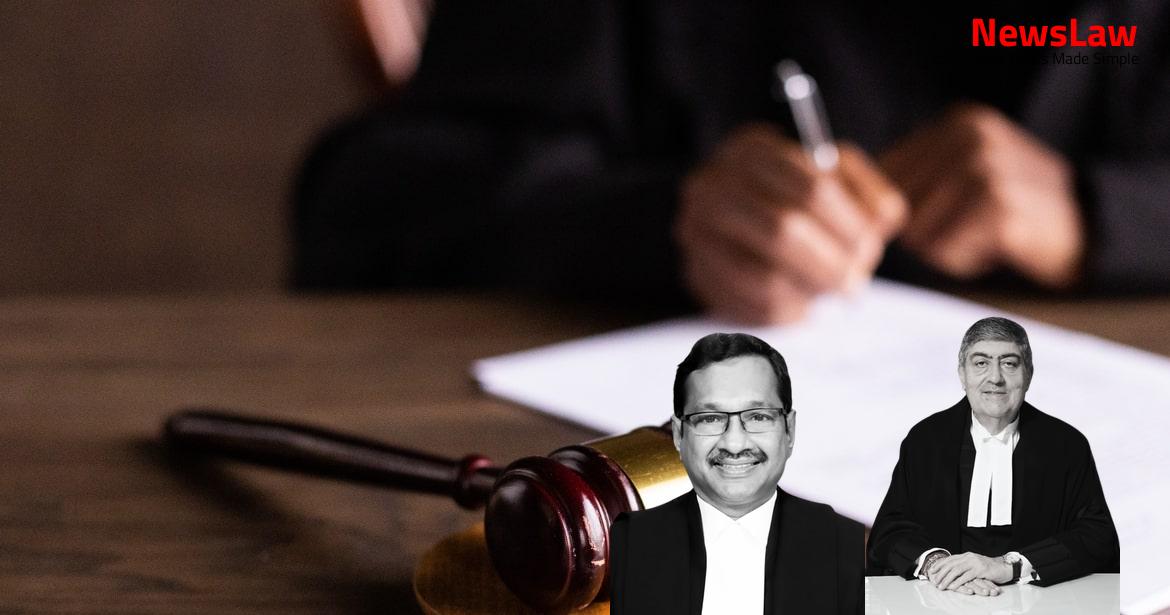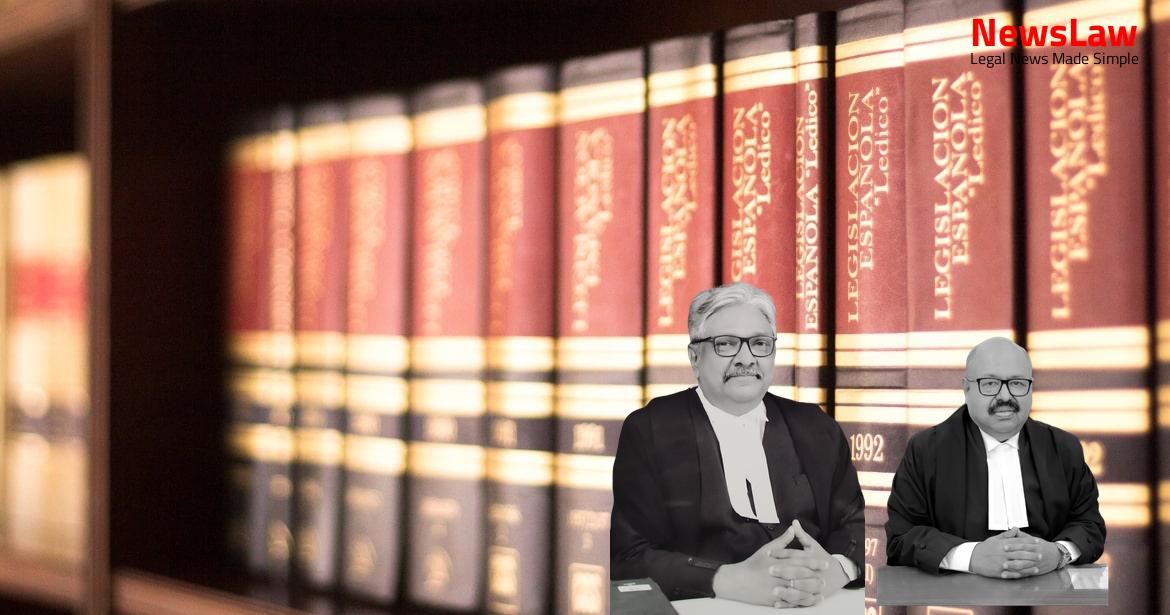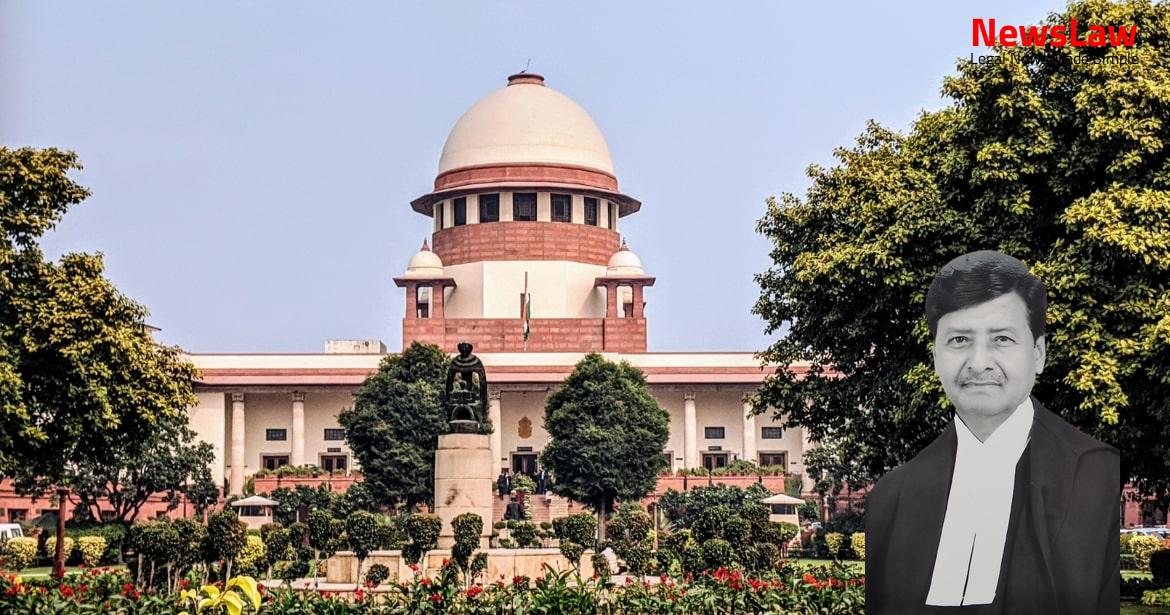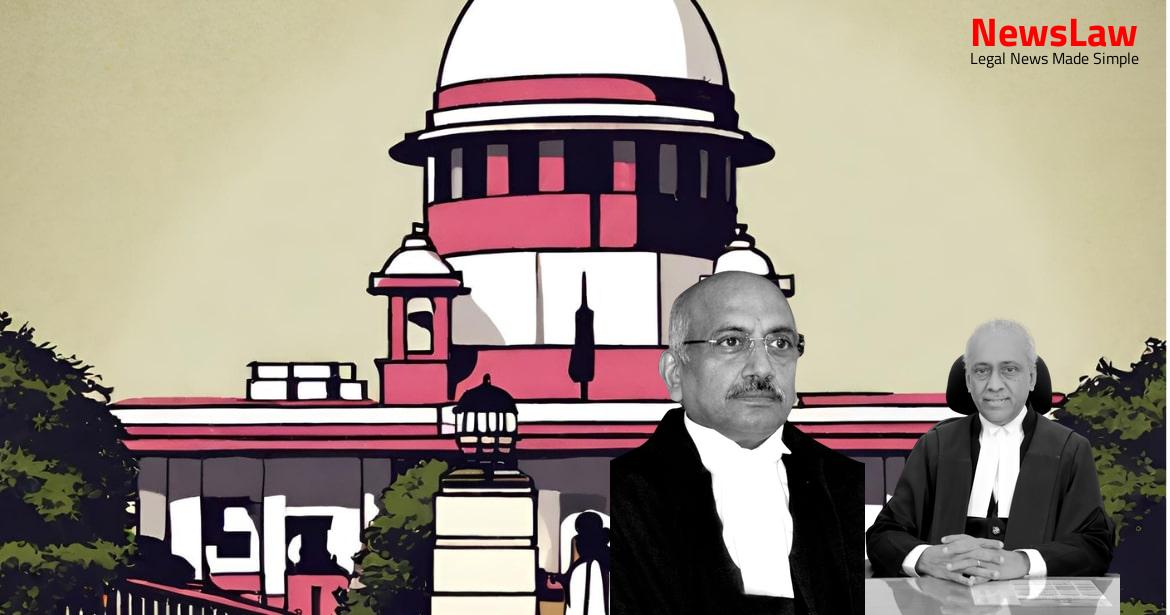Delve into the intricacies of promotion rights and retrospective seniority in civil service rules as analyzed by the court in our latest case summary. Understand how fundamental rights under Articles 14 and 16(1) of the Constitution play a crucial role in determining the validity of claims for promotion post voluntary retirement. The court’s legal analysis sheds light on the importance of adherence to established rules and principles in governance.
Facts
- Respondents filed writ petitions before the High Court seeking promotion post voluntary retirement.
- The appeals focus on two grounds: a voluntary retiree cannot claim promotion without rules, and delay in promotion consideration does not create a vested right.
- Respondents were JAG-II officers who voluntarily retired in 2010.
- Appellants challenged the orders by filing appeals.
- Respondent in Civil Appeal No.518 of 2017 was promoted on an ad hoc basis to JAG-I and regularized after a selection process
- 2003 Rules were amended increasing the sanctioned strength to 472
- Respondents filed applications before CAT, which were dismissed based on Rule 4 and 7 of 2003 Rules
- Writ petitions were filed and allowed, relying on Circular No.AB.14017/47/2011-EST (DR) dated 01.08.2012 for pay-upgradation
- High Court’s decision was based on a misconstruction of the Circular which applies only for upgradation simpliciter
- Respondent submitted that delay in promotion should not result in denial of entitlement based on the proviso to Rule 4 of 2003 Rules
Also Read: Supreme Court Judgment on Single Till Mechanism for HRAB Calculation: A Comprehensive Analysis
Arguments
- The Respondent in Civil Appeal No.518 of 2017 was appointed to JAG-I service on an ad hoc basis on 27.12.2011 and cannot seek promotion with retrospective effect without being inducted into the cadre.
- Under the 2003 Rules, a vacancy must be an actual one and inclusion in a select list for a different cadre does not create a deemed vacancy.
- Rule 4 and 7 of the 2003 Rules do not facilitate retrospective promotion in this case.
- There is no vested or accrued right over a promotional post, and migration of IAS officers from JAG-I happened in 2011, not 2009.
- Officers inducted into IAS from JAG-I get seniority from the date of vacancy, despite induction being subject to DPC.
- Delay in holding the DPC for induction of JAG-I officers into IAS led to actual vacancies in 2011, even if notional vacancies arose in 2009.
- Promotion from JAG-II to JAG-I is governed by the 2003 Rules, requiring an actual vacancy and DPC for promotion, not merely inclusion in a select list.
- Mere inclusion in a select list based on induction of JAG-I officers into IAS does not confer rights until entry actually occurs.
Analysis
- Rule 4.1 of the 2003 Rules specifies the grades, strength, and their review, including the operation of non-functional grades of JAG-I and Selection Grade.
- Rule 7 of the 2003 Rules mandates that vacancies in JAG-I can only be filled by promotion from the immediate lower grade as per Schedule III.
- The promotion granted after clearance by the DPC on 17.04.2012 with effect from 01.07.2011 was deemed appropriate as it aligned with the rules.
- The post of JAG-I is conclusively a promotional post from JAG-II, as per the rules and schedules provided.
- Upon retirement, there is a cessation of rights and any claim without adherence to rules is not maintainable.
- The specified rules and schedules govern the service conditions, including promotions from JAG-II to JAG-I.
- Articles 14 and 16(1) establish the right to be considered for promotion as a fundamental right.
- Article 14 prohibits the denial of equality before the law or equal protection of laws by the State.
- Article 16(1) mandates equality of opportunity for all citizens in matters of employment or appointment to any office under the State.
- Promotions should only be granted from the date of promotion and not from the date the vacancy arises, as per established case law.
- Inter se seniority in a service should be determined as per the Service Rules based on the date of entry or substantive appointment.
- Article 16(1) is a facet of Article 14, ensuring equality of opportunity in employment and appointment under the State.
- Promotions based on equal opportunity and seniority are considered facets of the fundamental right under Article 16(1).
- Notional seniority is typically not granted retrospectively unless based on valid classification and statutory rules, consistent with Articles 14 and 16 of the Constitution.
- Employees have a fundamental right to be considered for promotion according to relevant rules, whether based on seniority or merit.
- Promotions should not be directed to become effective before the Assessment Board meets and assesses the candidates’ suitability.
- Article 16(1) provides every eligible employee the fundamental right to be ‘considered’ for promotion.
- Retrospective seniority cannot be granted to an employee if the employee was not part of the cadre during that time.
- Seniority cannot be reckoned from the date of occurrence of the vacancy.
- Seniority cannot
Also Read: Selection and Appointment of Judicial Officers in Himachal Pradesh
Decision
- The court found that the defendant had violated the terms of the contract
- The plaintiff’s claim for damages was supported by evidence presented in court
- The defendant’s arguments regarding the contract’s terms were dismissed by the court
Case Title: UNION OF INDIA Vs. MANPREET SINGH POONAM (2022 INSC 279)
Case Number: C.A. No.-000517-000518 / 2017



